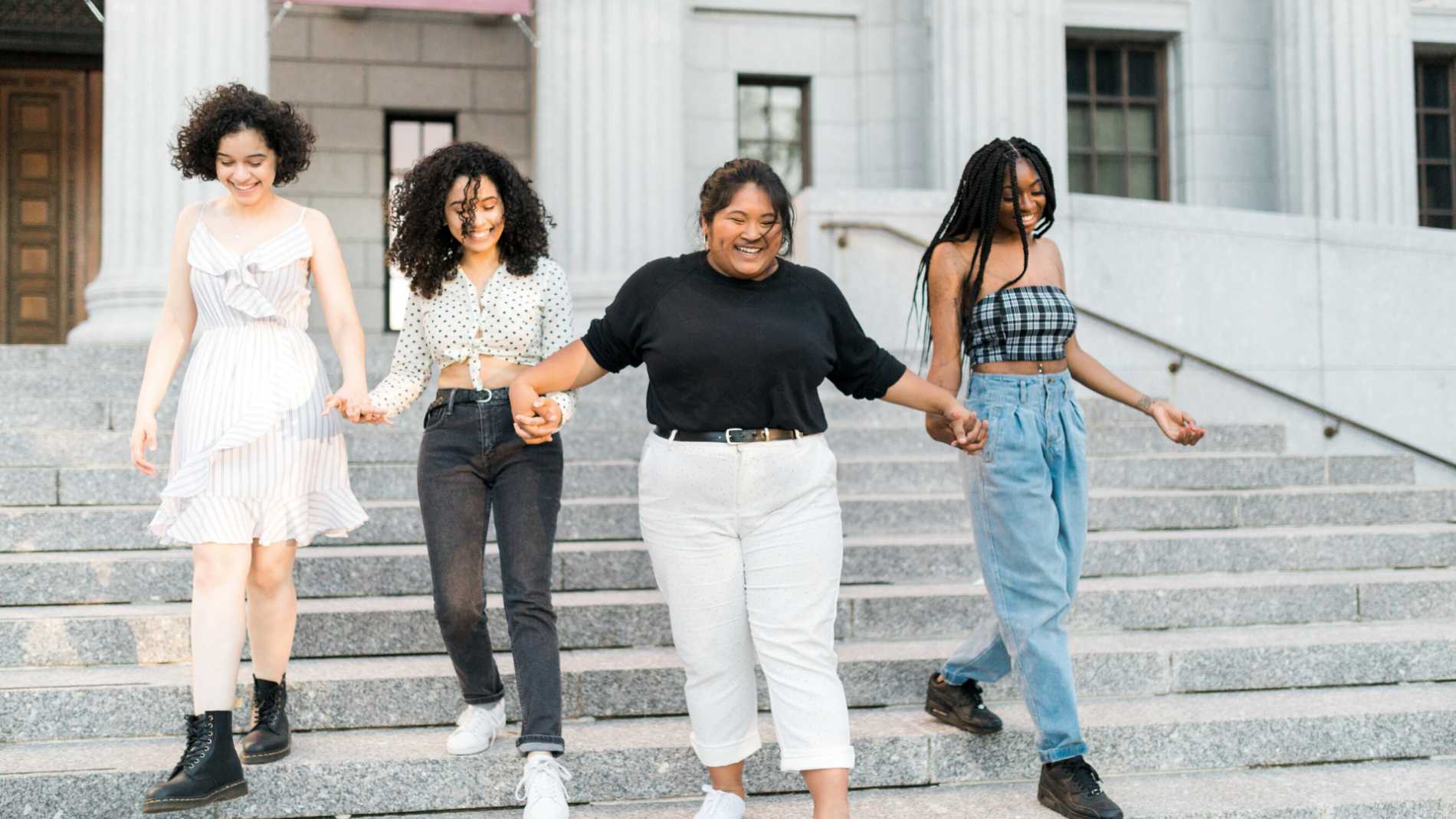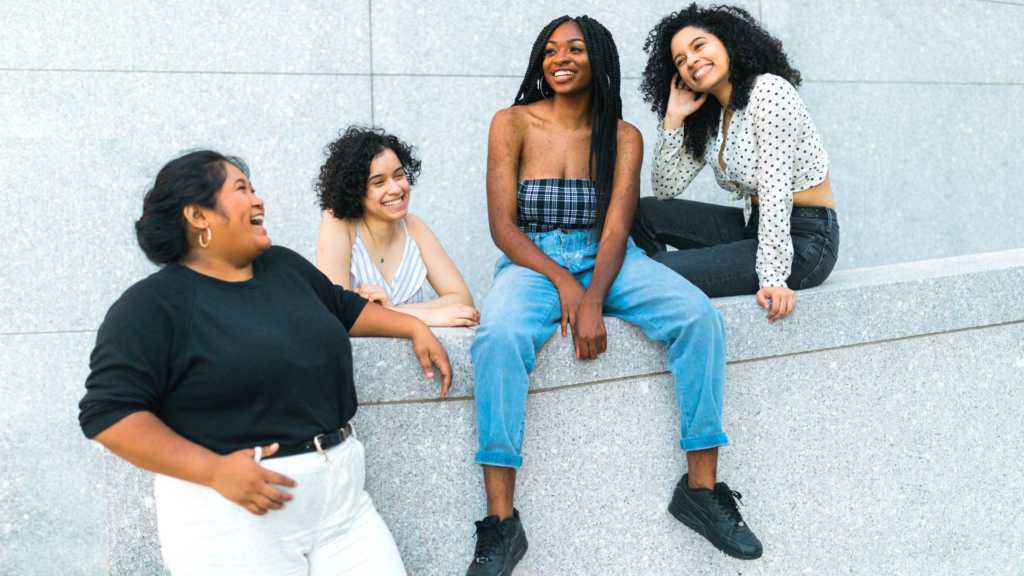
How Brands & Marketers Are Celebrating Black History Month
Last Updated on September 22, 2022 by Valerie Jennings
Black History Month: How Brands and Marketers Celebrate It
It’s Black History Month, which means you’re probably seeing a lot of social media content uplifting Black creatives and brands. But trends are showing a need for something different in 2021: Accountability. With social issues and the continued racial gap in the marketing industry, consumers are expecting brands to not only take action but also make effective and lasting changes.
Brands & Black History Month
The need for action has never been greater. In fact, a recent study from the University of Bonn found there has been zero progress toward equal income and wealth between Blacks and whites in the United States since 1950.
Every year, Black History Month is centered around a theme by the Association for the Study of African American Life and History. The theme for 2021 is “The Black Family: Representation, Identity, and Diversity.” To celebrate this February, many brands are hosting events to increase awareness in their business and industry, along with workshops, panels and employee story sharings to celebrate Black history in art, innovation and accomplishments.
Ways to honor Black History Month at work:
- Celebrate the diversity of employees and customers
According to the Association of Corporate Citizenship Professionals, 90% of African Americans “have said they want companies to stand up for issues, a statistic that affirms the strength of African American employees and consumers.” Amplify underrepresented voices and perspectives by shedding light on them this month. If your company has Employee Resource Groups (ERG), Black Meetings & Tourism encourages partnering the Black ERG with the LGBT, or another diverse group, to drive education and awareness programming in their communities. - Launch a Black History Month campaign
We’ve already been seeing lots of campaigns this month. One of them is Google’s campaign celebrating “the icons and moments that have been searched more than any others in the United States.” According to PowertoFly, they committed $25 million to help Black and Latino students develop skills and confidence to succeed in their careers. - Highlight achievements by African Americans in the industry
Cloudflare, a tech company, aims to build a better global tech community centered around diversity. According to PowertoFly, they’ve organized activities ranging from ”Afrocentrically-themed lunches, television and film screenings, and internal presentations to celebrate, educate and foster awareness of Black culture.” - Host talks, events and workshops
This year, Adobe’s theme is Black Employee Network celebrating Black life, love and legacy. Throughout February, they’re hosting events including discussion panels, networking and volunteering to show their support and to “come together to celebrate through various events focused on education, development, and health.” - Share content inspiring inclusivity and intersectionality
Aim to inspire through educational content, presentations and guest speakers from your local community or your industry.
There aren’t only brands changing history this year…
Check out these amazing marketers who are changing the game:
Bozoma went from being the head of music and entertainment marketing at Pepsi to the head of global consumer marketing at Apple Music/iTunes, to the chief brand officer of Uber, to the global chief marketing officer at Netflix. WOW, what a resume!
Eliana spent 10 years as the head of multicultural marketing at Google. As a 2017 Forbes 30 under 30 honoree, she founded the multicultural marketing department at Google intending to reach a more diverse audience. She is now the founder and CEO of her own innovation lab, production studio, and consulting firm with her family-owned small business, Element and Company.
Aleesha is the senior brand director at Quallis Brands Co., the parent brand of Scotch Porter. According to Likeable, she has a “multi-touch” approach and believes it is “critical to meet ‘him’ where he consumes content and delivers on his needs through product and information. No matter the medium, we focus on our products or highlighting interesting lifestyle hacks, our goal is for Scotch Porter to be a touchpoint in his life that makes him look, feel, and smell his best.”
Dharmesh is the co-founder and CTO of Hubspot, and a “self-declared ‘professional geek,’” according to Impact Plus. As a computer scientist, IT specialist and investor, he is a keynote speaker who likes to discuss business and mindsets and has done incredible work in educating others across the industries.
Meena is a lawyer, author, producer, activist and founder of the Phenomenal Woman Action Campaign focused on bringing awareness to social causes. Not only has she written a children’s book representing children of color, but she also works with non-profits like Native Voices Rising and Black Futures Lab, helping build Black political power and promote advocacy for people of color. According to Likeable, she said, “Social is not just about amplifying voices – it’s also about revealing and giving voice to folks who might not otherwise have that sort of access, whether that’s to politics or any other powerful institution.”
The racial gap in the marketing industry
According to the United States Census Bureau, there are more than 2 million Black-owned businesses in the United States. Among these business owners, 35% are Black women. According to Fundera, businesses owned by Black women earn significantly less than businesses run by other women. Studies also show Black business owners receive less business financing and at higher rates.
Companies are especially struggling due to the pandemic. According to Computer Data Networks, 58% of Black business owners’ finances are at risk due to the pandemic, and many businesses have closed in the past year. According to a study by the Federal Reserve Bank of New York, more than 40% of Black-owned businesses in the United States closed between February and April of 2020, versus about 17 % of white-owned businesses – leading to a 440,000 drop in Black business owners in 2020.
After the George Floyd protests in 2020, 32% of businesses made statements on racial disparities, 22% of businesses made external commitments and 18% made internal commitments. According to McKinsey & Company, businesses also committed $66 billion to advance racial equity, which was mostly put toward affordable housing, SME development and financial inclusion.
Now, what can we do to make our efforts last?
Words are nothing without action. According to McKinsey & Company, these five key elements need to be followed to make lasting racial-equity efforts:
- A clear mission and a central backbone
It’s important to have a clear mission for everyone to unite around. Collaboration around a central backbone is essential to build consensus and coalitions in a company.
- Accountability
You want to make sure you have accountability standards. According to McKinsey & Company, these should link the company’s KPIs to “broader economic indicators.”
- Secure funding
Black-owned businesses are underfunded. According to the Bridgespan Group, among organizations that are considered promising early-stage companies, Black businesses’ revenues are 24% smaller than white-owned businesses, and net assets of Black businesses are 76% smaller than those that are white-owned. If your company has sufficient funding, consider forming a coalition and pool resources for member businesses, foundations and individual donors.
- Maintain support
Action plans are nothing without active and consistent engagement. Focus your efforts on building support and outreach efforts through collaboration with leaders in your community or industry.
Here are 3 questions to ask yourself as a marketer
- When was the last time you posted about supporting Black creators and have you held your promises since then?
Did you make a promise last Juneteenth? Black History Month in 2020? How does your company compare now and then? Have you increased your efforts or have they remained the same? Take a hard, long look at your past strategy and see where your company is at today compared to then. As Amanda Johnson said to Traackr: “performative allyship is not allyship.” - What long-term changes have you made?
Do you make efforts for long-term partnerships with influencers, clients and colleagues of color? - Does your company pay Black, Indigenous and people of color the same rate as white clients and influencers?
There is a big racial gap across industries, also in marketing. Are you (and your company) doing your part?
Our Agency
Jennings Social Media Martech has supported Black-owned businesses since its founding in 2003. Most recently, we’ve worked with the Black-owned start-up beauty salon StudioVII in Kansas City, as well as Dr. Richardson at Hormone KC in the areas of medical weight loss and hormone therapies. Our agency vows to continue to be part of the conversation and to celebrate Black joy and the creatives who made their mark on history through the leadership and sacrifices of others before us.
What are you doing to support Black-owned businesses? What Black creators inspire you? What other plans of action do you believe are important to obtain racial equality in the industry? Let us know in the comments below.







